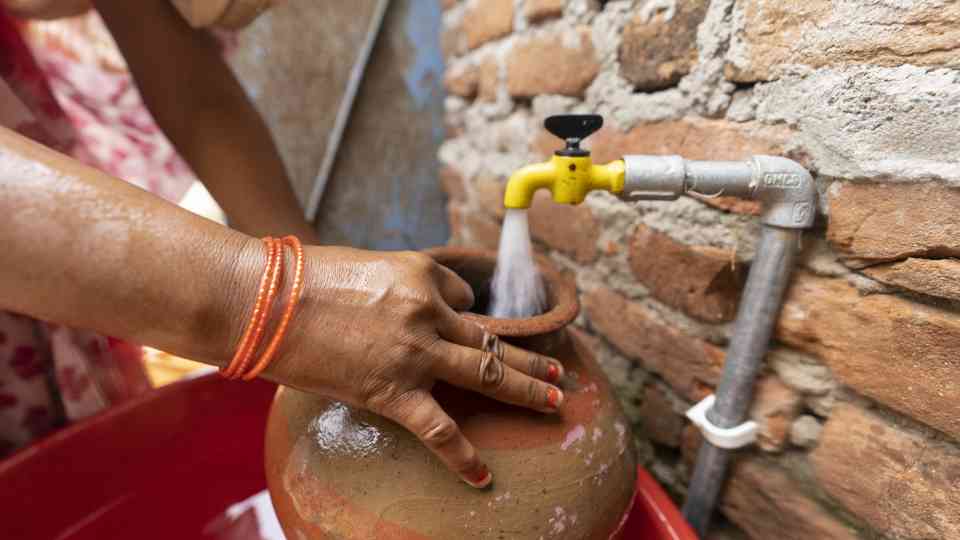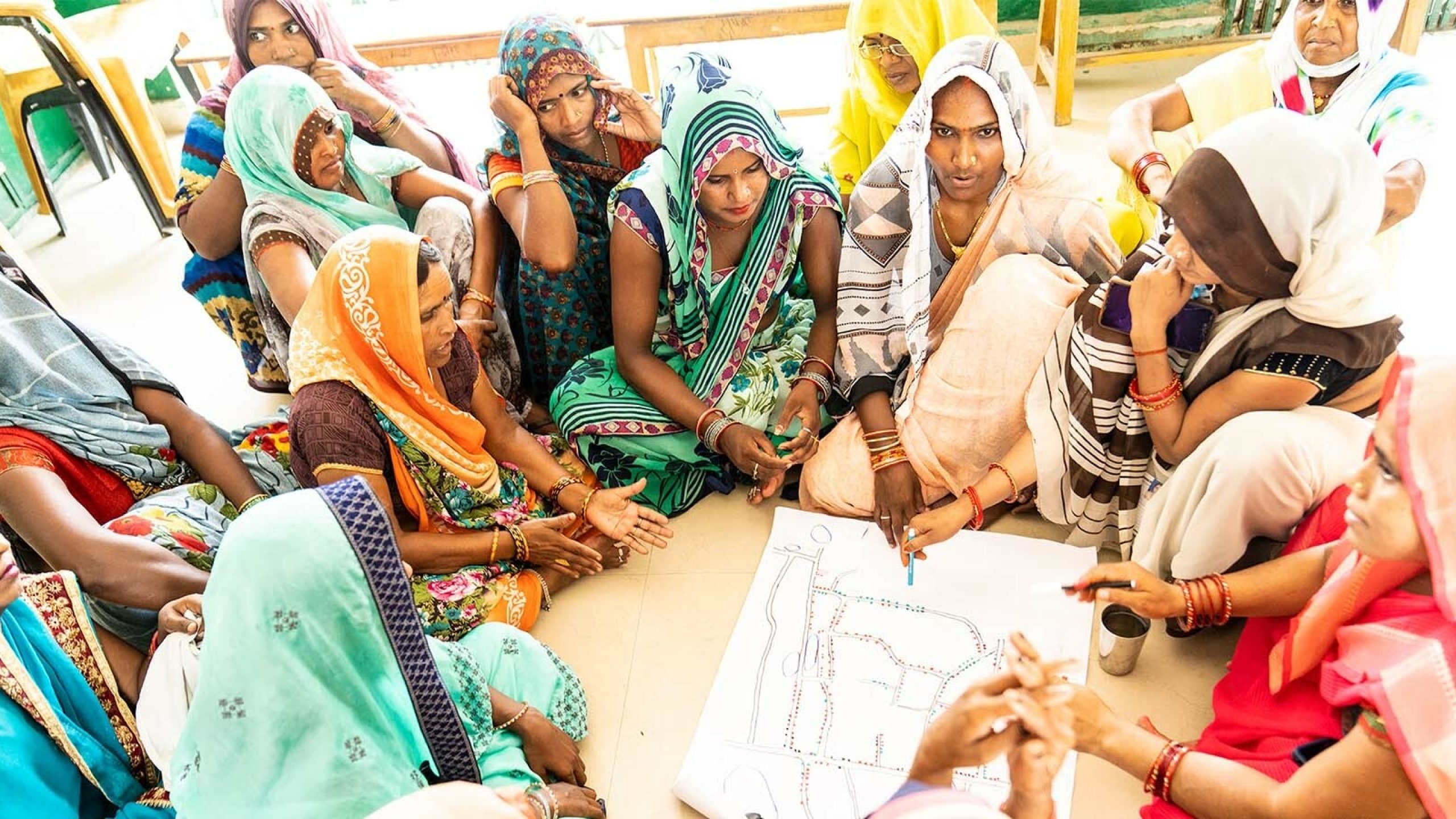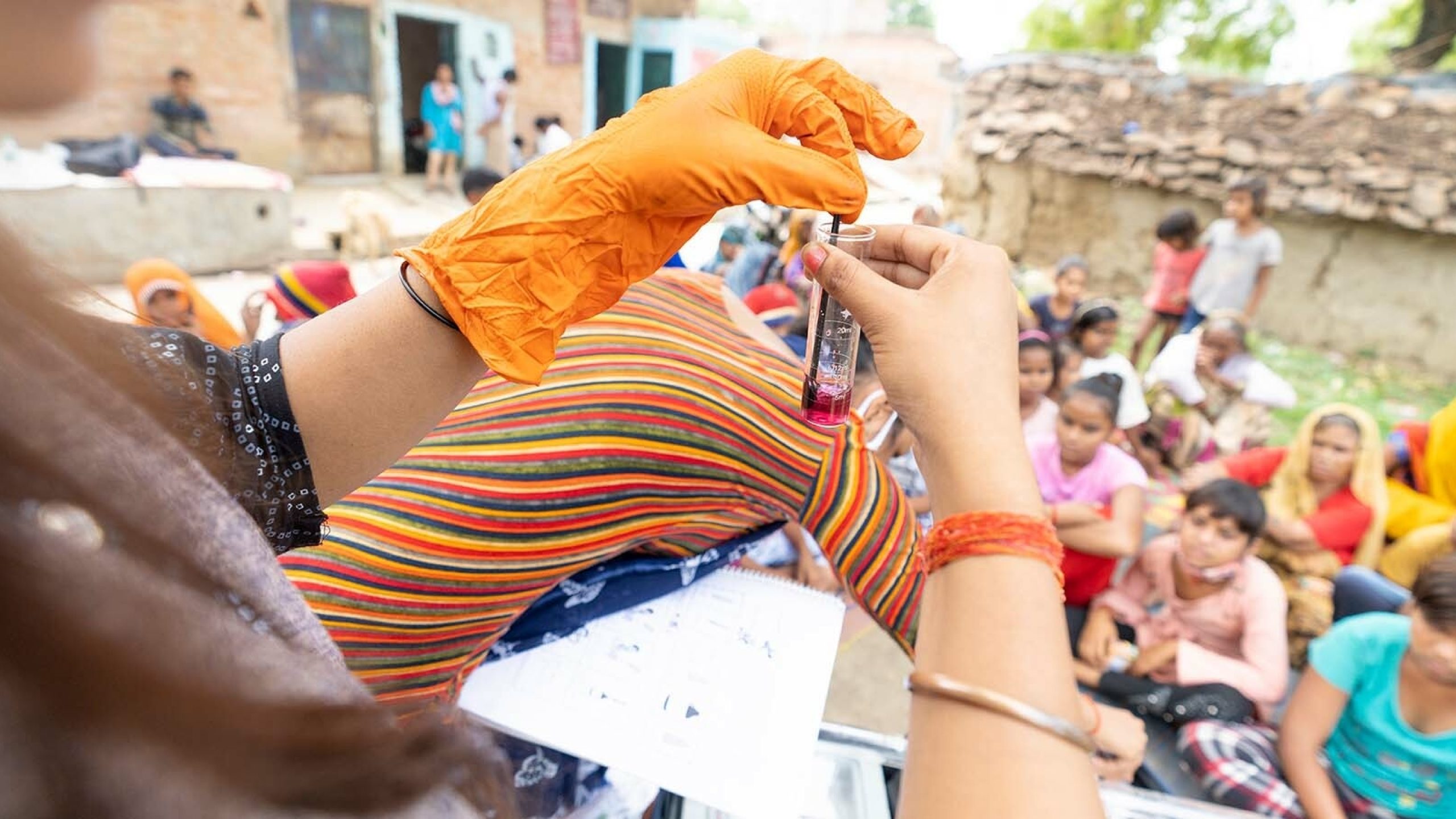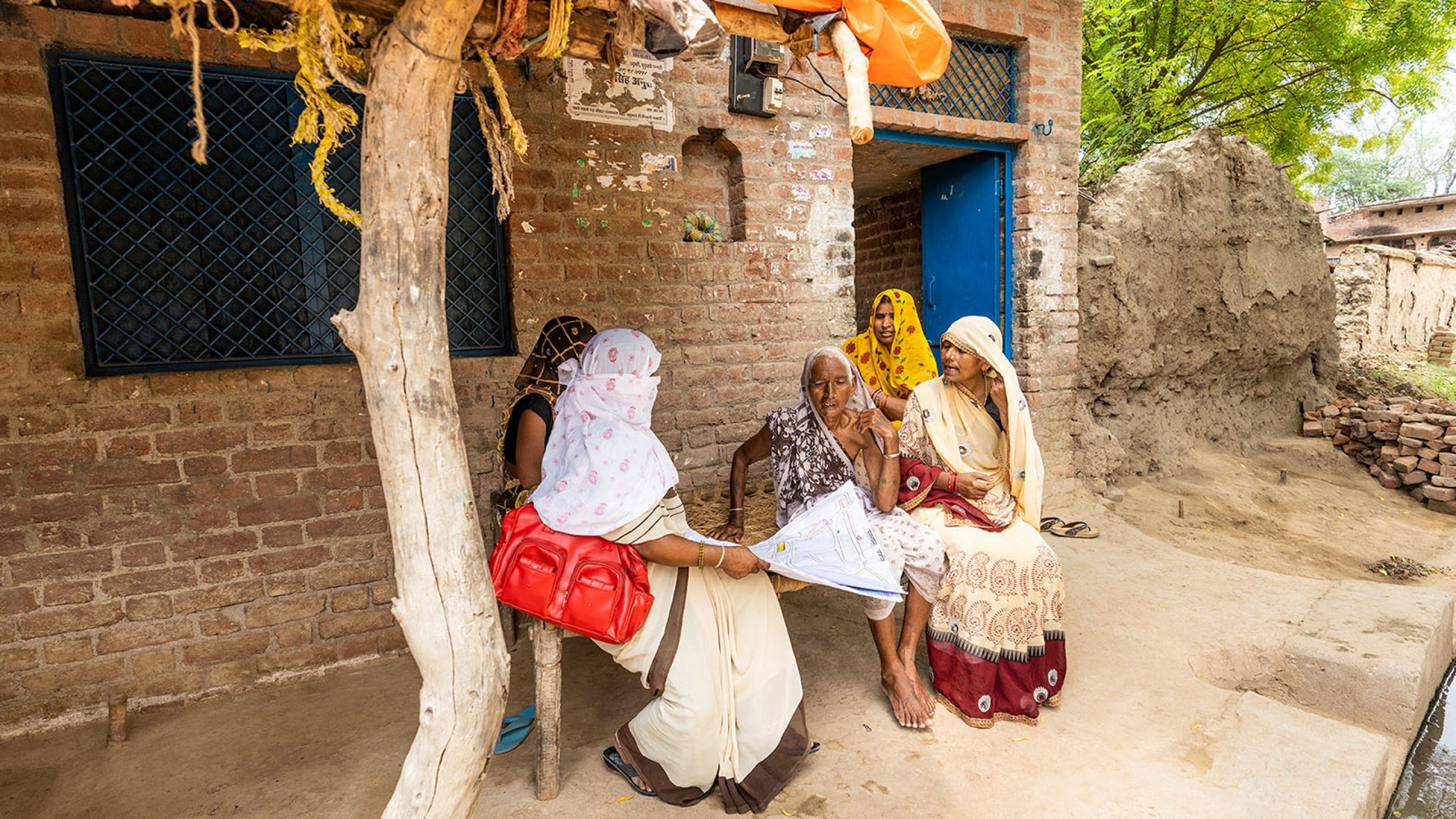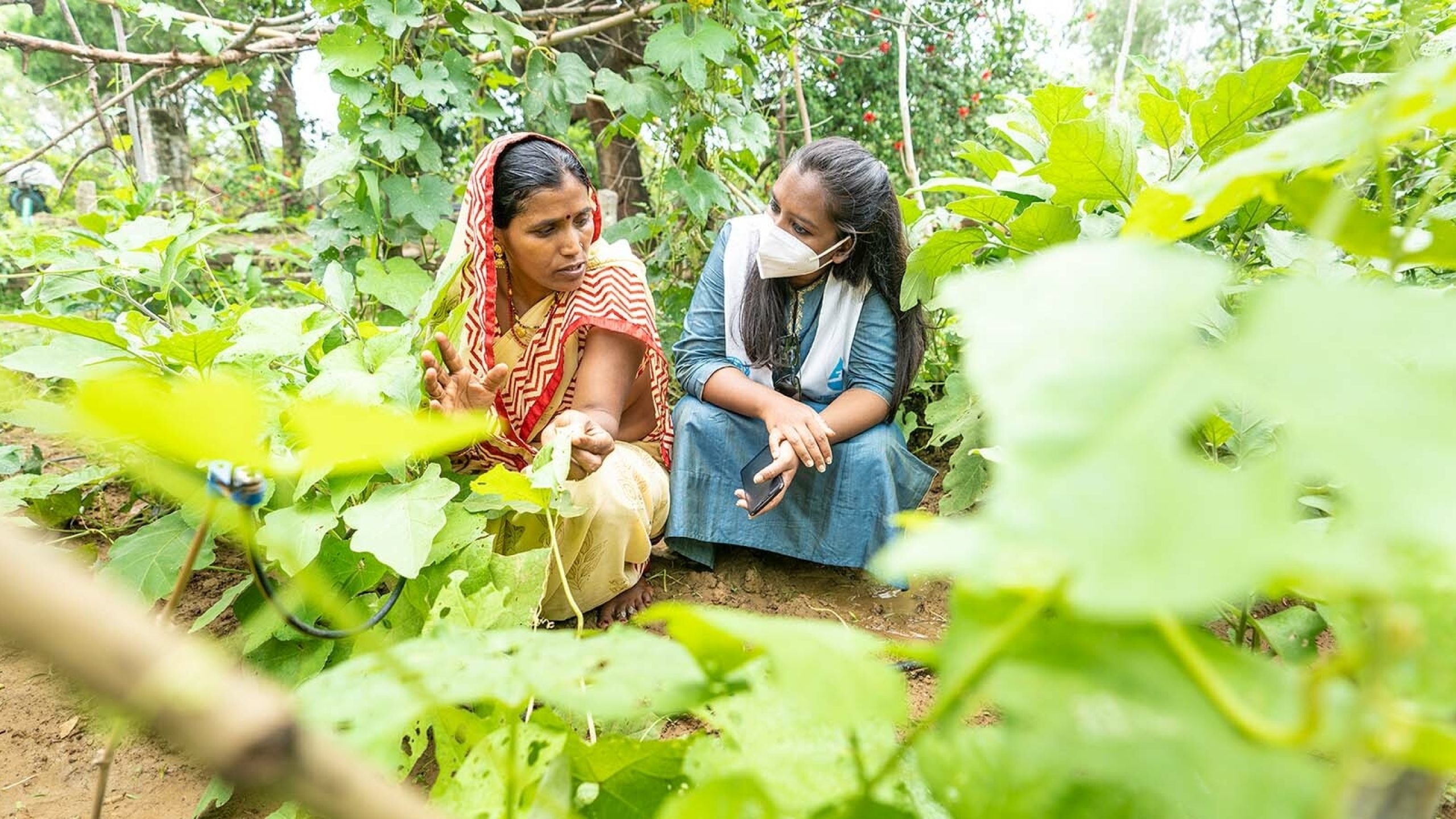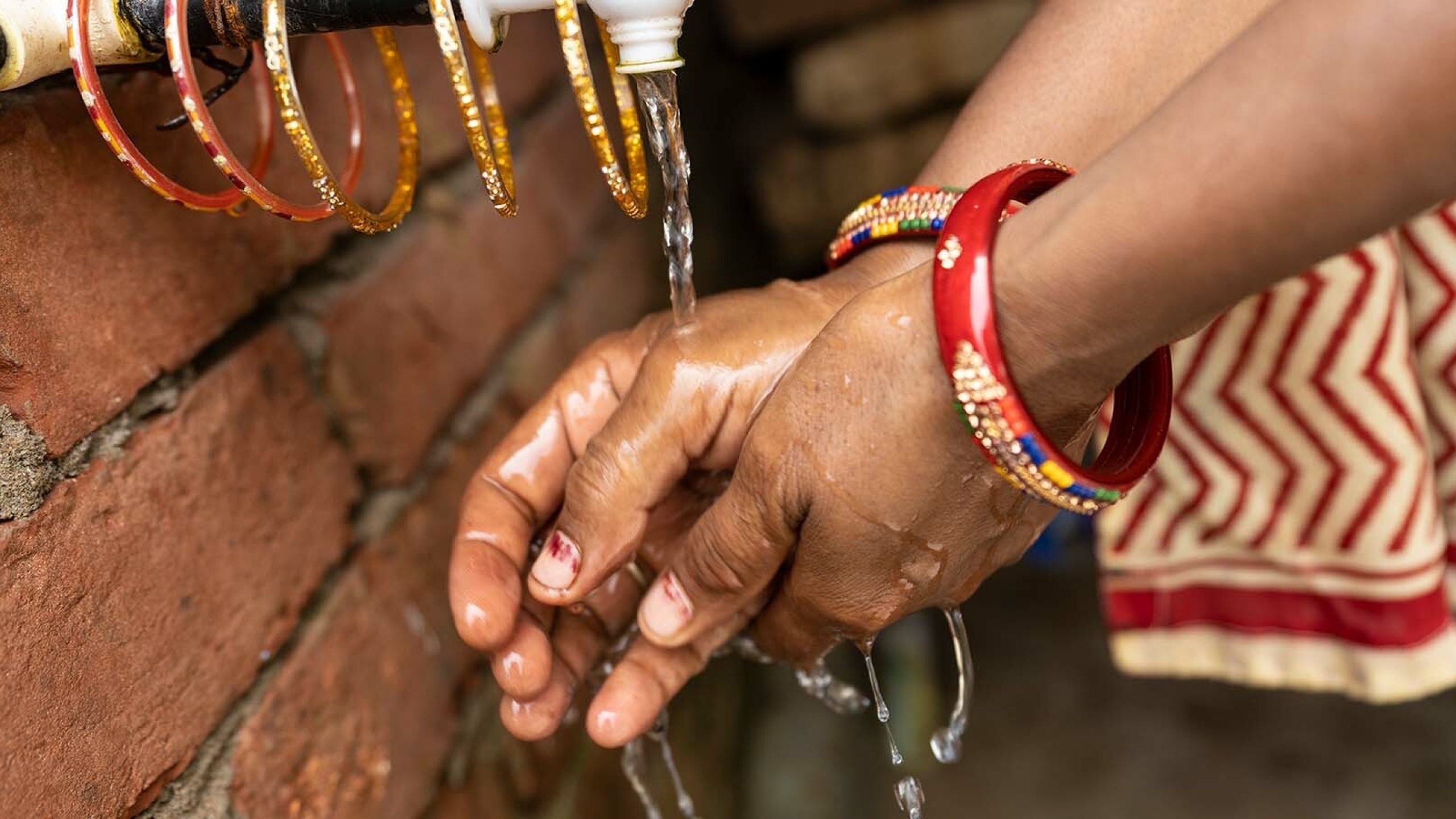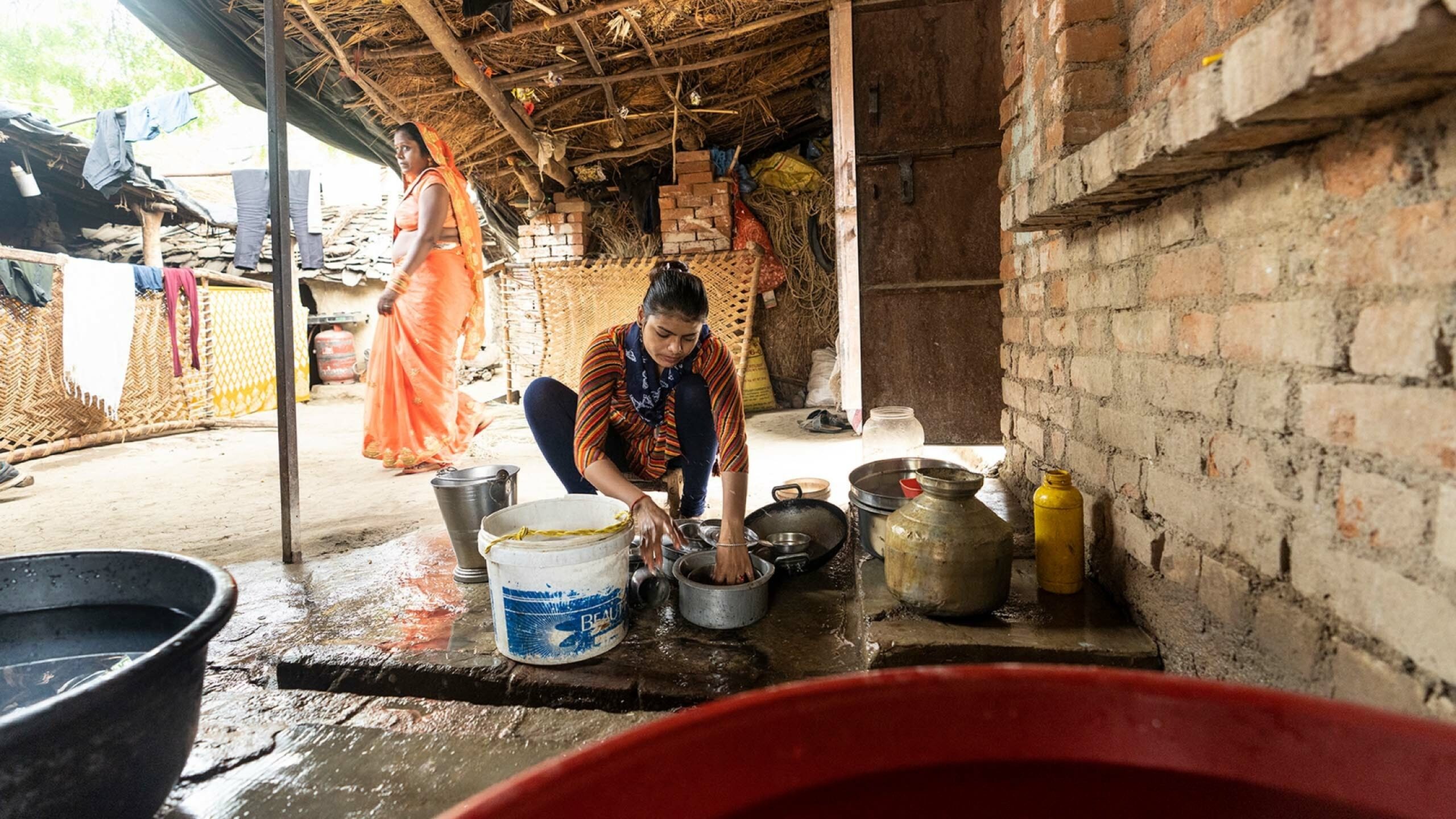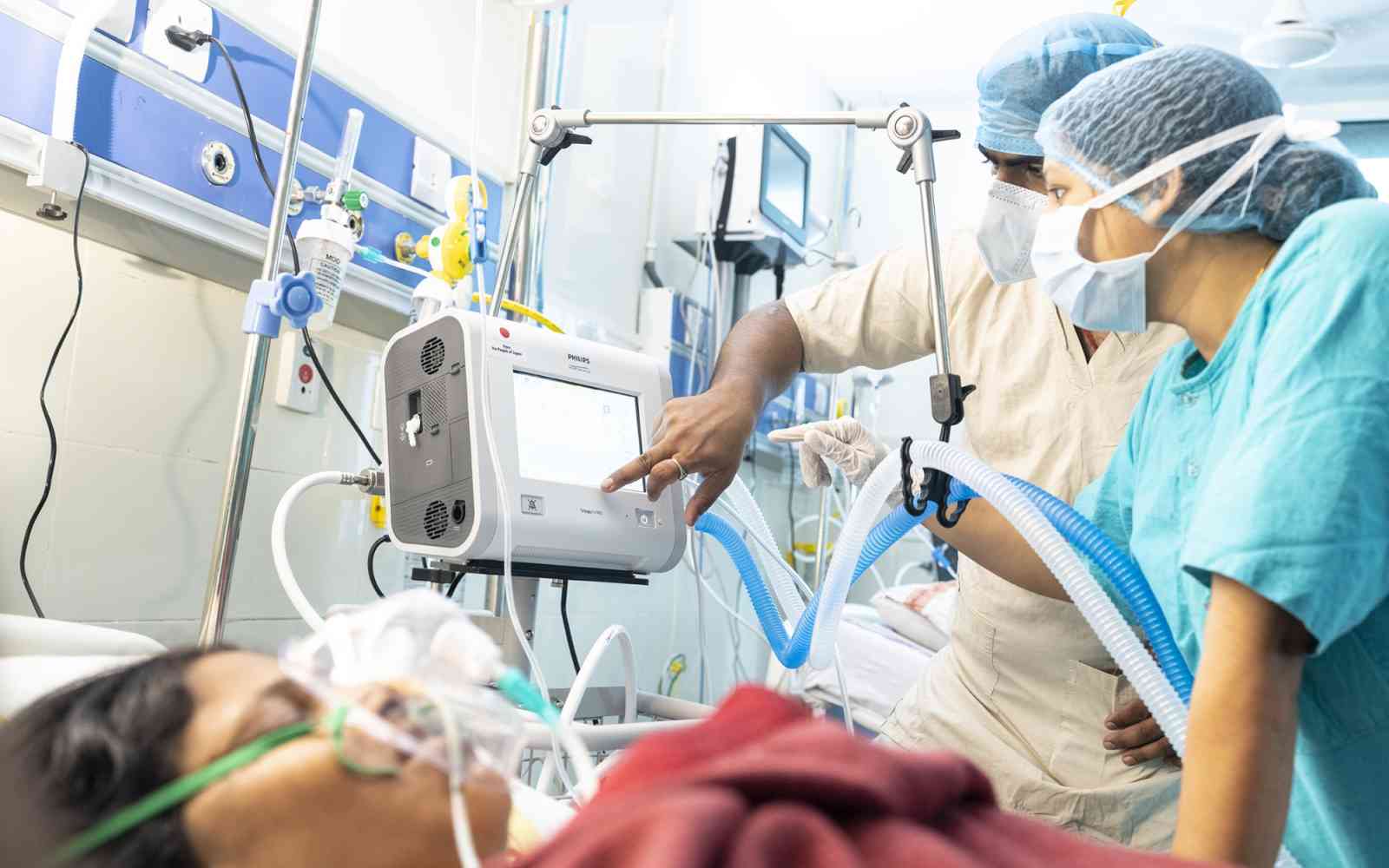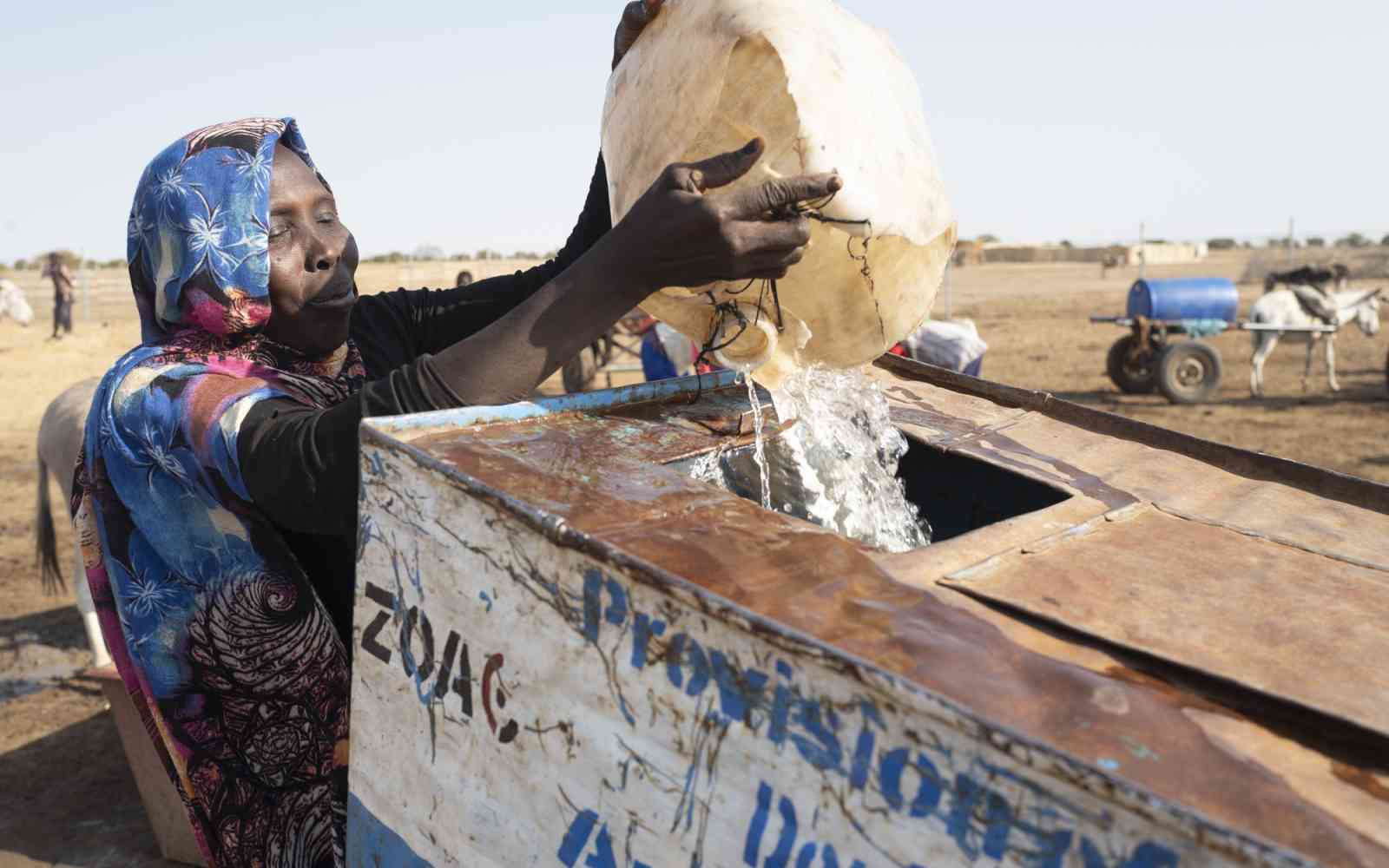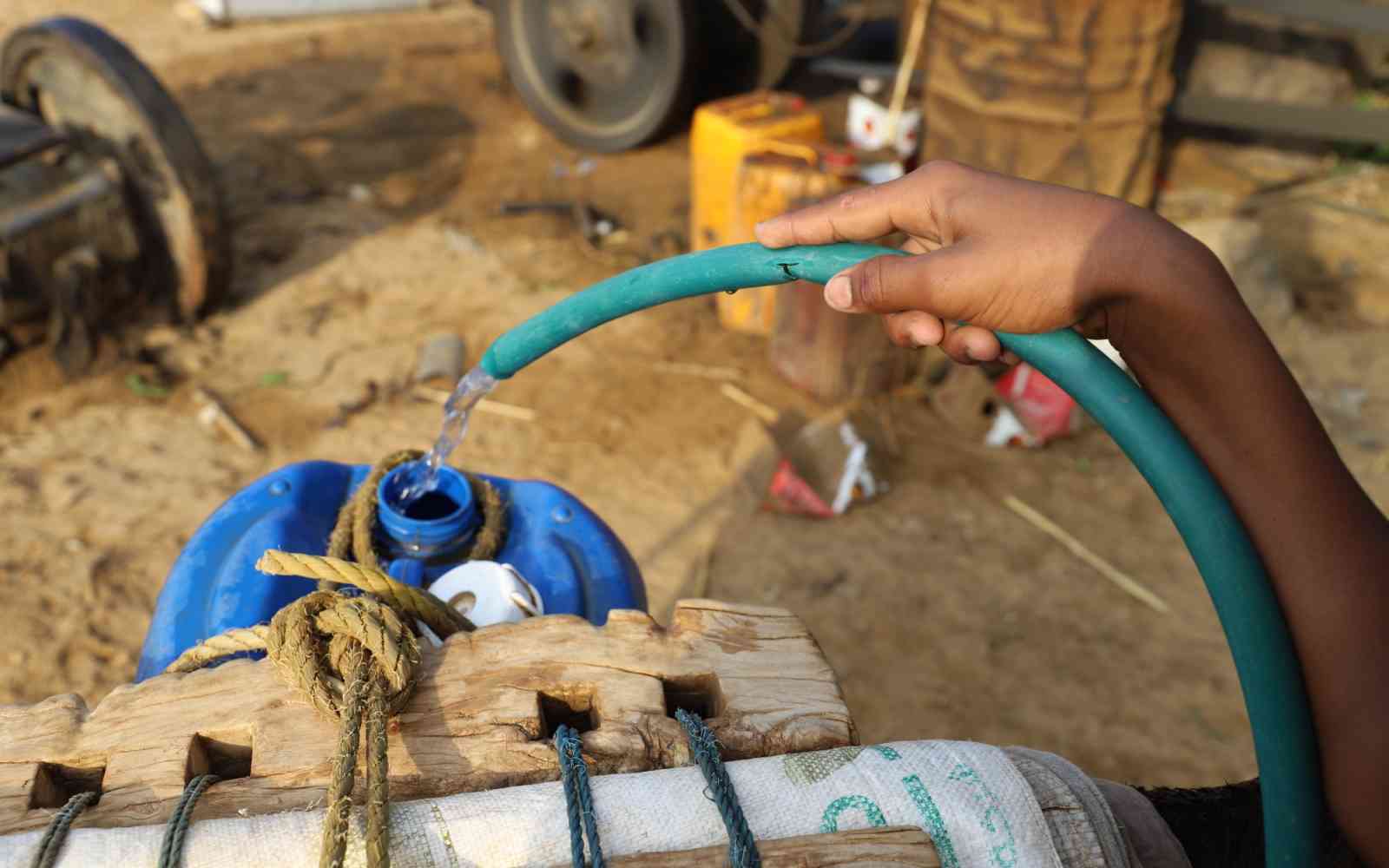The United Nations Office for Project Services (UNOPS)

Delivering a better future by the drop
Our earth’s freshwater resources belong to all its citizens. Yet millions of women, men and children around the world face the daily indignities of life without clean water.
We take a look at one project in northern India that is helping lay the foundations for healthier communities through improved access to clean water and sanitation facilities.
Photos
- © UNOPS/John Rae
Water is a precondition for all life. Our very existence depends on it – we drink it, cook with it, use it to maintain even the most basic levels of hygiene. We need it to grow food and for our animals.
In India, nearly 900 million people live in one of the country’s 600,000 rural villages. Around 45 per cent of this population still cannot access safely managed drinking water. That’s approximately 400 million people without proper access to a vital resource.
In 2019, the government of India started the Jal Jeevan Mission to provide adequate, safe and reliable drinking water to all rural households in India by 2024, through the installation of functional household tap connections.
UNOPS joined hands with the government of Denmark to support the Jal Jeevan Mission in India – providing strategic technical and training support.
The work is focused on 137 villages in the state of Uttar Pradesh, located in northern India. The underserved people that reside in this part of the country live in extreme poverty and face serious issues of water scarcity and contamination.


Gender inequalities are most stark when it comes to water, sanitation and hygiene (WASH) services. Without proper WASH services, women and girls face insurmountable barriers to leading healthy, safe and productive lives.
In India, women and girls disproportionately carry the heavy burden of collecting water, which is unpaid work. This is a task that can steal many hours from the day – hours that can be used on education, on skill development, on accessing economic opportunities.
Malti Devi is 23 years old and comes from a small village in Uttar Pradesh. She takes care of the family home and her young son while her husband works the fields.
“Our homes had no taps. We used to fetch water from a hand pump, which was far away. Going there was time-consuming,” she says.
Eighteen-year-old Kalpana also understands the challenges all too well. She had to travel to common wells on the outskirts of her village. The many hours spent collecting water for her family often kept Kalpana from reaching school on time. She faced long waits at the wells with large crowds competing over limited resources.




To help mitigate issues caused by gender inequalities, the government of India has created space for women to make up at least half of the members on each required Village Water and Sanitation Committee. The committees are responsible for the maintenance of the in-village water supply systems.
“I believe the matter of water management is linked to women [...] who had to spend almost two and a half to three hours time collecting water for their families,” explains Santosh Soni, a community consultant on the project. “Women play a significant role in this matter.”

"Women’s participation is a must as we are the ones who do all the chores."
Malti Devi - Local resident
UNOPS work brings communities – led by their women – to the table. The situation is mapped and needs are assessed based on lived experience, which informs the process going forward.
“When we came to the village and began the Community Leaves No One Behind (CLNOB) mapping, women were hesitant to step out of their homes," says Santosh Soni.
“We did three types of mapping under CLNOB. First, a mapping of sanitation and hygiene. Second, a mapping of drinking water. And third, a mapping of the grey water, which is also known as waste water," he explains. “Today, the situation is that we have taken a step back and women themselves are facilitating the process.”
To support longer-term sustainability, local communities are mobilized with knowledge and skills to take ownership of the water connections in their villages. Local capacity is being built so that communities can do their own maintenance, surveillance, water quality monitoring and grey water management. Residents are also shown how the new installations will help contribute to a cleaner and greener outlook for their villages. UNOPS trained approximately 700 women in water testing techniques so that they would have the ability to check drinking water sources in their villages.
Usha Devi participated in the UNOPS-led water testing training program. From the Ramgoolam village in Uttar Pradesh, Usha married young and was not allowed to continue her education. She has been keen to support her community and was eager to participate in the training.
“Today I feel empowered that despite my limited formal education, I am capable of educating others about water. I have new confidence in myself, I take better care of my home, make informed choices, share water conservation techniques and show how waste water can be managed efficiently,” she says.
Savita Kaushik from a neighbouring village shares the same sentiment.
“We realized how much water is wasted by us every day, which could be saved and reused in kitchen gardens. Now we save water and have started using grey water more efficiently,” she says.
The Jal Jeevan Mission aims to ensure that no one is left behind by making sure that it leaves each village with 100 per cent coverage. As of today, the initiative has achieved nearly 50 per cent of its goal.
When it comes to WASH, every city, town and tiny village counts, if we hope to achieve Sustainable Development Goal 6: Ensure availability and sustainable management of water and sanitation for all by 2030.
Globally, current levels of progress will leave the world far short of that goal – by billions of people.
New figures from the World Health Organization and UNICEF’s Joint Monitoring Programme show that current efforts to improve access to safe water and sanitation services need to quadruple in order to meet this goal. And everyone needs to be involved to make this happen – from the highest policymakers down to individual communities.
About this project
UNOPS and the government of Denmark have partnered under the larger framework of the India-Denmark Green Strategic Partnership of 2020. The project aims to provide strategic technical support to the Jal Jeevan Mission – the national flagship programme of the government of India – which is working to ensure that every rural household in India is fitted with a functional household tap connection by 2024.
Under the agreement, UNOPS is working in 137 villages across 11 of the most water-scarce districts in the Bundelkhand and Vindhya regions of Uttar Pradesh. The efforts prioritize active community participation, with a special focus on gender equality.









